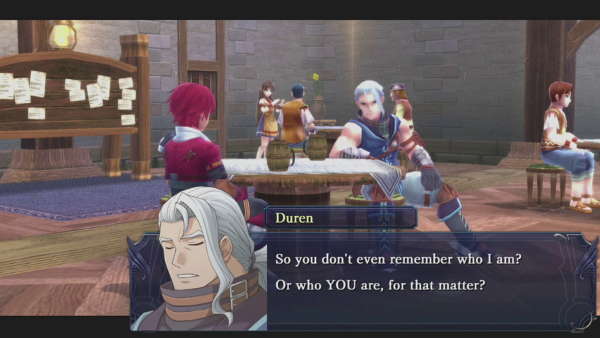The Assassin’s Creed series seems to get more and more ambitious with every entry. The series went from an interesting if flawed third person action game to a full on pirate simulator, with an intensely convoluted dual-plot narrative running throughout. Assassin’s Creed Unity is the latest entry, and it deliberately takes a step back from the epic scope of Black Flag – for better and for worse.
A new game means a new Assassin, a new city and a new time period. Set in late 18th century Paris, you play as Arno Dorian, from his childhood adventures with his best friend Elise to his joining the Assassin Order and beyond. Arno himself is actually quite a likeable protagonist, and while he’s no Ezio, Arno serves as a far more interesting character than the likes of say, Connor Kenway.

Arno ditches the white of his ancestors for blue, but you can change this any time
Unity gets rid of a ton of elements from previous Assassin’s Creed games. How Ubisoft chose which mechanics to remove and which to keep and why is a mystery because some of the omissions are glaring. You can no longer, for example, pick up bodies after you incapacitate or kill someone, meaning guards will die where they are and never move. Also gone is the ability to whistle when in a hiding spot to lure a guard over. During some of the stealthier sections you’ll miss the whistle option from Black Flag as you wish the guy will walk past you so you can stealth-kill him.
Assassin’s Creed Unity takes things back to the days when Assassin’s Creed was about hiding in plain sight, finding a way to kill the target and getting out. The game takes place almost entirely in the city of Paris and all travelling is done on foot. You’ll blend in crowds, sit on benches to turn invisible and hide in haystacks. If you are a fan of Black Flag, you’ll probably be a little disappointed; likewise if you wanted to see the series return to its roots, you might fare a little better.
Talking of crowds, Assassin’s Creed Unity features the biggest crowds seen in the series. In some sections there can be up to 1000 people on the screen, truly making Paris feel like it’s in the middle of a political upheaval. Paris also looks absolutely amazing, featuring the stunning architecture of Notre Dame, the Palais de Justice and more. The interior sections also look fantastic, with the grand palaces and estates or Paris recreated in detail. This is the first Assassin’s Creed game aimed solely at the PS4 and Xbox One, and it shows. While it does look great, the game often reveals how it achieves this with obvious pop-in on NPC clothing, random drops in frame rate and also considerably stupid AI behaviour in some spots.

Crowds help the revolution come to life, but there is some obvious level-of-detail pop-in on their clothes when running through Paris.
Assassin’s Creed Unity’s launch has been seen as scandalous by some, because of some of the glitches described above. While I never experienced anything truly game-breaking, there were moments where the AI clearly went haywire or the collision detection led to some bizarre occurrences, including a guard falling out of a window and not reacting to that at all.
Assassin’s Creed games have long suffered from the issue of “icons on a map” game design. Once Paris is open to you, the map drowns in extraneous tasks for you to do, like opening each chest or finding every meaningless collectible. Unity is no exception here, and that is a disappointment. The side missions which don’t involve the usual kill/find/escort goal are the best, and see you solving murder mysteries by examining crime scenes, or solving nefarious riddles.
However, the riddles, while intriguing, are basically fruitless. Since Assassin’s Creed II, there have been special outfits with unique buffs that are unlocked by fulfilling some grand side-quest. After solving all the riddles and puzzles to get it, the special outfit in this game is literally a black version of Altair’s robes from the first Assassin’s Creed, with no special quirks to speak of at all – what a disappointment.
The reason for this is Unity’s emphasis on character customisation. At any time you can pause the game and change practically anything about Arno’s appearance that you like. You have a selection of hoods, sleeves, britches and more to choose from, and they all give Arno different stats, essentially like any RPG. You can even change the colour scheme too, so if you want an Arno who dresses all in bright pink who wears a masquerade mask, you can – even if he looks nothing like an Assassin.
The emphasis on character customisation stems from the fact that Assassin’s Creed Unity has a considerable amount of online co-operative elements. You and a team of three others will be tasked with infiltrating a scenario and fulfilling various tasks. Unless you are in communication with your team-mates, then there’s nothing to stop your buddies just triggering an alert and killing everything in sight. The four players are supposed to be assassins, but often what happens is you’ll end up running everywhere, mowing down foes together looking like the Paris Power Rangers. You can spec your character into four skillsets and if you assemble a team of friends who specialise in each then the co-op missions will be considerably more enjoyable.
The parkour gameplay has received one very important addition – you are now able to climb down buildings just as easily as you can climb up them. This is one of the few innovations introduced in Unity, and works so well it will be awkward to go back and play previous games. You can run toward an edge, and if there’s nowhere to jump to you can gracefully scale down, using whatever handholds are available, and land on the ground quickly. This is a really nice update to the movement mechanics of the series. It’s not perfect though as you sometimes find yourself wishing Arno would jump off the waist-high railing he’s clung to.

Paris looks stunning in Assassin’s Creed Unity, and is massive to boot. There are lots of things to do here – perhaps too much.
Easily the best parts of the game are the sandbox-type missions in which Arno assassinates his most important targets. The game gives you a target, a location and that’s it. You can either choose to try and just kill them, or by completing side objectives which can net you the kill in different ways. These sections require careful planning and exploration, as you will often find that charging in head-first will often get you killed. In one mission, you can discover a way to poison your target, and in another you can fake being a prisoner by finding a key. The first of these missions offers ten entrances into Notre Dame, and it’s this that makes the game almost hit that early-Hitman holy grail of stealth gameplay. These are very rewarding and reinforce the idea that this is a stealth game in which you play as a covert assassin. If every mission allowed a level of freedom like this, we’d be looking at a revolutionary step forward for the series.
Unfortunately, these are only a few of the sequences in the game. Mostly the missions will end up being a combination of meeting a character, getting to a certain point, battling alongside Elise and escaping or a boss fight. There are one or two missions whereby you have to follow someone while simultaneously remaining undetected, and they are obnoxious. You have to stay in a certain range of them while they make their way around too, which is a pain. Thankfully they are nowhere near as bad or as frequent as in Black Flag or Assassin’s Creed III.
Assassin’s Creed Unity has some very strong points, chiefly the sandbox missions and the multiple interesting ways of tackling them, but overall it feels like Ubisoft are trying to cram too much stuff on their deliberately-smaller plate. Perhaps if the map wasn’t filled to the brim with pointless side quests and instead focused on delivering fewer but better ones, then the series could see some faith renewed after the arguable oversaturation of Assassin’s Creed games caused by annual releases. Unity is a step backwards, but also a step to the side as it promises a tantalising glimpse into what a stealth-focused Assassin’s Creed game could be like.




